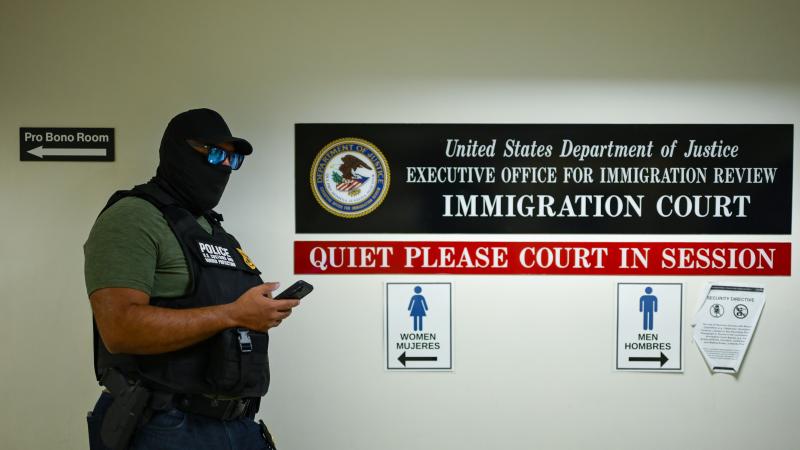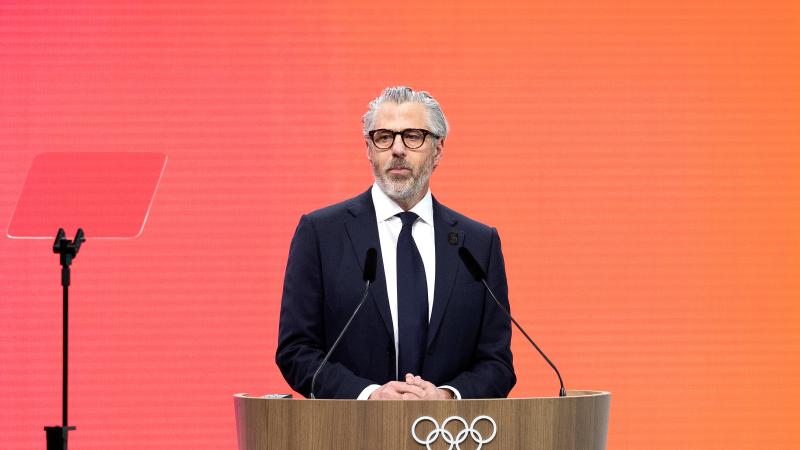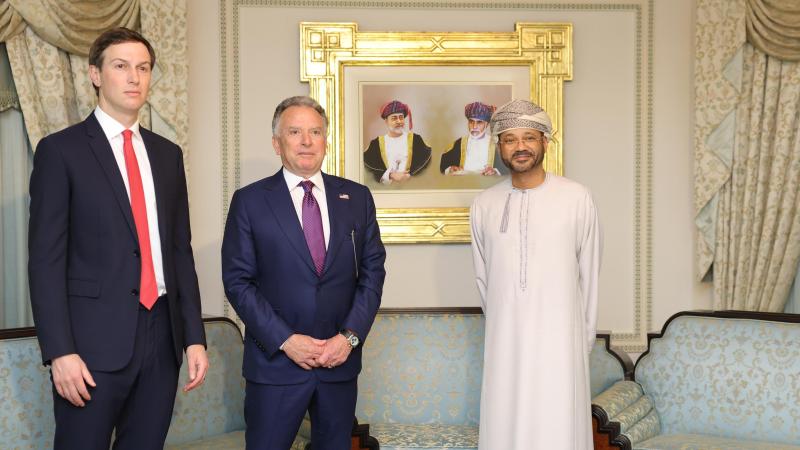Trump bombed Iran into a ceasefire and sent a loud message to China and Russia
Trump hoping it is "out of their system": The threat is not over for Israel or the United States, but Monday’s retaliation strikes on Al Udeid Air Base in Qatar appear to have been of little effect, perhaps by design.
In a historic sequence of events, the world went from watching Iranian nuclear sites obliterated, to witnessing Iran's so-called retaliation, to then processing a ceasefire in just over 48 hours.
The extraordinary display of U.S. soft and hard power by President Donald Trump should have impact far outside the Middle East, particularly with Russia and China, according to security expert Rebecca Grant.
"This is the cornerstone of our deterrence and containment policy. So the success against Iran's air defenses has really strengthened U.S. global military policy and stability around the world, and it should scare China and Russia quite a lot," Grant, who serves as vice president of the Lexington Institute, told Just The News,
Ret. USAF Colonel Rob Maness agreed.
"President Trump is masterfully reestablishing conventional deterrence in the Middle East and establishing nuclear deterrence in the Middle East for the first time," he said. "That same mental model and message is going into the brains of President Putin (of Russia) and President President Xi (of China), but especially to President Putin and his people."
The United States' Al Udeid Air Base, situated just southwest of the Qatari capital of Doha reportedly endured little damage after an estimated 13 of 14 missiles from Iran were intercepted. That base is also home to other foreign air forces, including small detachments from the UK and Australia. It is claimed to be the largest air base in the Mideast.
On Monday, Iran's Tasnim news agency reported that Tehran conducted missile strikes on U.S. military bases in Qatar. Qatar-based Al Jazeera observed missiles in the skies above the Gulf state, which hosts the U.S. Al Udeid airbase and U.S. Central Command (CENTCOM).
Initial reports indicated that Iran also fired missiles at a base in Iraq. However, Reuters reported that, per a U.S. military official, no such attack took place at any other bases.
In a statement on X, Qatar's Foreign Ministry spokesperson Majed Al Ansari posted: "We express the State of Qatar's strong condemnation of the attack on Al Udeid Air Base by the Iranian Revolutionary Guard Corps, and consider it a flagrant violation of the State of Qatar's sovereignty and airspace, as well as of international law and the United Nations Charter. We affirm that the State of Qatar reserves the right to respond directly in a manner proportional to the nature and scale of this blatant aggression and in accordance with international law."
Evacuated as precaution
He also confirmed that the base had been evacuated prior to the attack and that there were no injuries or fatalities: "The base had been evacuated earlier, following established security and precautionary measures, given the tensions in the region. All necessary steps were taken to ensure the safety of personnel at the base, including Qatari Armed Forces members, friendly forces, and others. We confirm that no injuries or human casualties resulted from the attack."
Reuters reported that Iran informed the United States through two separate diplomatic channels hours ahead of the U.S. military base attacks in Qatar. The attack came hours after Qatar closed its airspace and the U.S. Embassy issued a shelter-in-place advisory for American citizens in the country, stating it was "out of an abundance of caution." PBS is also reporting the Iraqis gave advance notice. As for Trump, he posted a statement to Truth Social Monday saying in part: "they’ve gotten it all out of their system,”
Retaliation partly symbolic
After Saturday's attacks on Iran's nuclear facilities at Fordow, Natanz, and Isfahan, which Trump touted as "totally destroyed," he posted: "Any retaliation by Iran against the United States of America will be met with far greater than what was witnessed tonight."
Following the United States' strike in 2020 that killed Qassem Soleimani, commander of the Quds force division of the Islamic Revolutionary Guard Corps (IRGC), Iran vowed "harsh retaliation." However, in what is generally considered a symbolic response five days later, Iran attacked two Iraqi air bases, Al-Asad and Erbil which produced no fatalities.
Mirroring Monday's events in Qatar, Iran reportedly informed Iraq in advance, allowing U.S. forces to take cover, resulting in no American deaths, though more than 100 U.S. personnel suffered traumatic brain injuries in 2020, according to NPR. The advance warning in both instances suggests that the retaliations are at least partly symbolic, aimed at satisfying domestic calls for a reaction while dodging a broader conflict or escalation.
Amid a flurry of posts to his Truth Social account on Monday, Trump said, "Iran has officially responded to our Obliteration of their Nuclear Facilities with a very weak response, which we expected, and have very effectively countered. There have been 14 missiles fired — 13 were knocked down, and 1 was “set free,” because it was headed in a nonthreatening direction."
Confirming reports of no casualties of Americans, he stated, "I am pleased to report that NO Americans were harmed, and hardly any damage was done."
Reemphasizing his desire for peace after the tit-for-tat, Trump said, in part, "Perhaps, Iran can now proceed to Peace and Harmony in the Region, and I will enthusiastically encourage Israel to do the same."
Hours later, the ceasefire was announced.
Trump used the Qataris as intermediaries with Tehran after Trump spoke with the country's leader. That conversation occurred just hours after Iran launched a missile barrage at a U.S. Air Force base near Doha, an attack that was repelled by anti-ballistic missiles, multiple officials told Just the News.
Trump had thanked the Iranians for giving Qatar a heads-up about the attack, and it led to unexpected negotiations for a ceasefire, the officials said.
Trump called the Emir of Qatar, telling him he could get Israel to agree to a ceasefire, and asked the Emir's help getting Iran to commit to the same, the officials said.
Qatari Prime Minister Mohammed bin Abdulrahman Al Thani then coordinated with Vance to seal an agreement with the Iranians, the officials said.
The Facts Inside Our Reporter's Notebook
- Doha reportedly endured
- agency reported
- Al Jazeera observed
- Majed Al Ansari posted
- advisory for American
- totally destroyed
- posted to Truth Social
- Truth Social account














